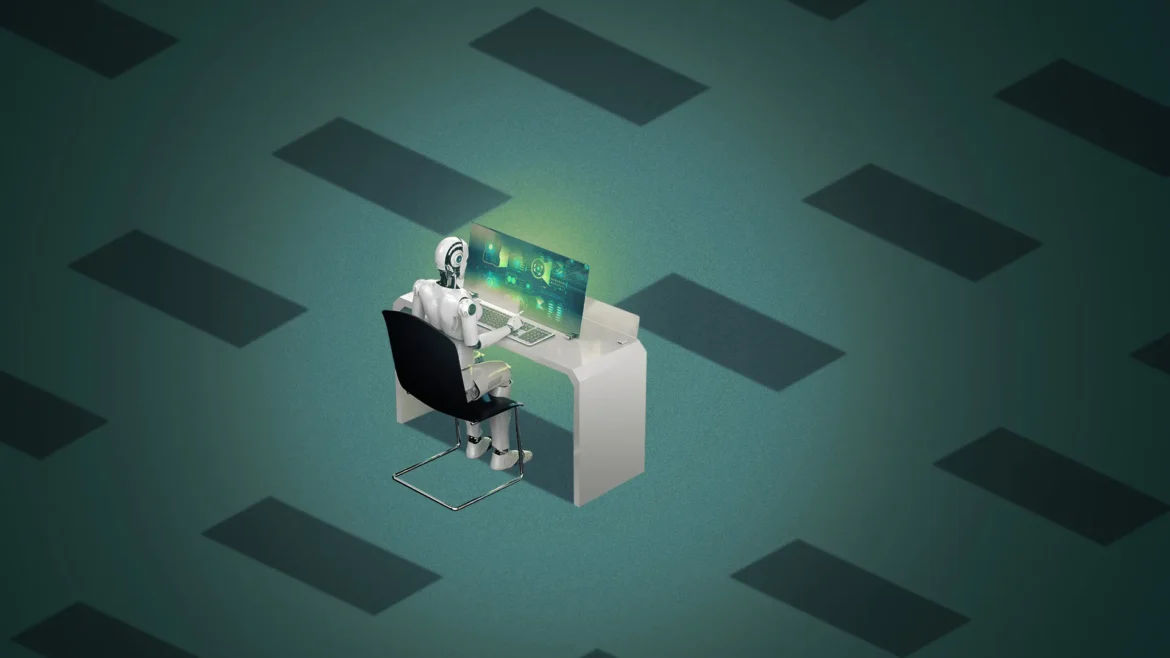In a world increasingly driven by automation, artificial intelligence (AI) is no longer just a buzzword—it’s a strategic force reshaping the way businesses operate. In July 2025, ServiceNow, a leading automation software provider, revealed that it will cut $100 million in hiring costs by leveraging internal AI tools. This bold move offers a real-world glimpse into how AI is impacting the workforce, altering organizational structures, and transforming how enterprises scale.
$100 Million Saved: What Happened?
ServiceNow’s CEO, Bill McDermott, announced that the company had significantly reduced its 2025 hiring plans—without compromising productivity or innovation. Thanks to the rapid integration of AI into internal processes, teams across departments are:
- Automating repetitive workflows
- Speeding up software development cycles
- Reducing dependency on manual data entry and customer service roles
- Enhancing decision-making using real-time predictive analytics
By embracing AI early and aggressively, ServiceNow expects to save $100 million that would have otherwise been allocated to salaries, onboarding, and HR infrastructure.
Why Is This a Big Deal?
1. Real Evidence of AI ROI
While many companies talk about AI adoption, few have publicly quantified its financial benefits. ServiceNow’s announcement proves that AI isn’t just a futuristic trend—it’s a tangible cost-saving tool.
2. Signals a Broader Shift in Tech Hiring
The company’s decision is a bellwether. If a major enterprise software firm can significantly reduce its need for new hires through AI, what does that mean for the future of entry-level tech jobs?
3. Competitive Advantage via Efficiency
Rather than spending more to grow, ServiceNow is focusing on doing more with less—a model likely to be emulated by other firms aiming to protect margins while innovating.
The AI Tools Behind the Shift
ServiceNow didn’t rely on third-party systems alone. It integrated AI into its Now Platform—the core of its digital workflow engine. Key functionalities include:
AI-Powered Workflow Automation
Replaces traditional task routing, approvals, and escalations with intelligent automation that adjusts in real time.
Predictive Analytics for IT & HR
AI analyzes historical trends to forecast needs—allowing managers to make faster, more informed decisions.
Natural Language Processing (NLP)
Used in virtual assistants and internal chatbots, NLP reduces the burden on customer support and internal help desks.
Low-Code/No-Code AI Integration
Enables non-developers to create AI-driven tools without extensive programming skills, spreading automation across all teams.
Industry-Wide Implications
ServiceNow isn’t alone. Other tech giants like Microsoft, Amazon, and Salesforce are doubling down on AI-powered efficiency. Here’s what the trend means:
Hiring Models Will Change
Roles involving repetitive tasks—especially in IT, HR, and support—will become increasingly obsolete or transformed into AI-supervised functions.
Upskilling Becomes Urgent
Employees will need to reskill fast. Skills in data analysis, prompt engineering, AI model supervision, and ethical governance will dominate future job descriptions.
Job Roles Will Evolve, Not Disappear
While some jobs will vanish, others—like AI trainers, workflow architects, and data custodians—are already emerging. Think evolution, not extinction.
Ethical & Social Questions
While ServiceNow’s move is innovative, it raises important societal questions:
- What happens to the talent that would have been hired?
- Are companies investing enough in ethical AI usage and transparency?
- How do we balance profit-driven automation with inclusive workforce policies?
These are questions policymakers, CEOs, and the public must address—especially as AI-driven decisions become more normalized.
Global Impact: Developing Economies at Risk?
In emerging markets like India, the Philippines, and Brazil—where tech support, outsourcing, and data services provide millions of jobs—AI automation could disrupt livelihoods if not accompanied by parallel investments in education and re-skilling.
Governments and corporations must collaborate to future-proof workers through:
- AI literacy programs
- Public-private training initiatives
- Incentives for ethical automation practices
What Can Business Leaders Learn?
If you’re in leadership, consider these steps:
1. Audit Your Processes
Identify workflows ripe for automation—think billing, onboarding, customer service, etc.
2. Invest in Internal AI
Don’t rely entirely on off-the-shelf tools. Build internal capabilities and consider open-source AI as a backbone.
3. Reskill, Don’t Just Replace
Use AI to augment human talent, not eliminate it. Offer AI training, certifications, and promote from within.
What Should Employees Do?
If you’re a professional navigating the AI wave, here’s your action plan:
Learn AI Fundamentals
You don’t have to become a data scientist—but understanding LLMs, neural networks, and prompt design is a must.
Master Tools of the Trade
Get hands-on with platforms like:
- Microsoft Copilot
- ChatGPT (for text-based tasks)
- ServiceNow AI workflows
- Low-code platforms like Bubble, Zapier
Build a Future-Proof Skill Set
Focus on:
- Critical thinking
- Creativity
- Empathy & communication
- Multidisciplinary adaptability
These are traits AI can’t replicate easily—yet.
Conclusion: A Glimpse Into the Future
ServiceNow’s $100 million cost-saving story is a case study for the new digital economy. AI is no longer optional—it’s essential for growth, scalability, and sustainability. But with this power comes responsibility: to build ethical systems, prepare the workforce, and lead with empathy.
Whether you’re a CEO, developer, or aspiring techie—understanding the power and pitfalls of AI is crucial for thriving in the AI-first era.
Want to Stay Ahead of AI Trends?
Subscribe to our newsletter for weekly insights on automation, AI in business, and future workforce strategies.

